
Jesus Family Tree
The genealogy of Jesus is traced through Joseph, but Joseph had nothing to do with Jesus' conception. The following explanation sheds light on what seems to be a confusing issue.
We have two genealogies of Jesus- Matthew 1:1-17 and Luke 3:23-38. Because there are so many substantial differences between these two (for example, many of the ancestral names don't match), they have given scholars a headache through the ages. For example: Who was Joseph's father? Was it Jacob (according to Matthew), or Eli (according to Luke)?
One answer is: both lists are family records, but Matthew is giving us Joseph's record, and Luke is giving us Mary's. But that answer goes against the text - Luke makes it clear that he is tracing Jesus' descent through Joseph. Nor does it fit with what we know of ancient middle eastern peoples. A genealogy traced through the mother would not have been normal at that time and place in history.
We have to remember that Israel's origin was tribal. The clan leader was, of necessity, a dominant male. The individual's survival depended on being able to claim membership within the tribe. Since in real life many things could happen to a bloodline, a number of supplementary laws and customs developed. A person could become a member of a clan without actually being born into it. One way was by adoption. Another was to be born of a woman who was married to a man of that clan. Even when the husband was not the child's biological father, he was still officially the legal father, simply because he was husband to the child's mother.
In the Bible, genealogies can serve different purposes. Besides establishing identity, they can also be used to structure history into epochs and to authenticate a line of office-holders. That's why an individual can be accorded two or more genealogies according to the purposes for which they were drawn up. Rarely do ancient biblical genealogies afford us a list of strictly biological ancestry.
What were Matthew's and Luke's purposes in giving Jesus a genealogy? They list different ancestors but agree totally on the most important fact: Joseph was not the biological father of Jesus. To see how Matthew made a strong statement about this, read slowly Matthew 1:1-17. Let the repeated, rhythmic phrases "A the father of B," "B the father of C," and so forth, almost lull you to sleep. What happens when you get to verse 16? The lilting, fixed pattern is suddenly altered: "Jacob was the father of Joseph the husband of Mary. It was of her that Jesus who is called the Messiah was born." By using his genealogical list in this way, Matthew was able to proclaim both that Jesus was virginally conceived and that he was also legitimately a "son of David, son of Abraham" (1:1). For Matthew's Jewish Christian audience this was like calling Jesus the Messiah.
Luke proclaims our Lord's virginal conception when he speaks about Jesus as being - so it was supposed - the son of Joseph in 3:23. He then takes his genealogy back to Adam and even to God himself. In doing this he is stating that Jesus is nothing less than the Son of God. Because neither evangelist was principally concerned with Jesus' biological ancestry, the lists could differ, and each evangelist could present a different popular tradition suitable to his own specific purpose.
So we see that Joseph was not Jesus' biological father, but he was his legal father. The two genealogies make that point emphatically. Because of that, all of us can now proclaim with the Scriptures that Jesus was, indeed, son of David, son of Abraham, and Son of God.
© Liguori Publications Excerpt from Advent - A Quality Storecupboard The Congregation of the Most Holy Redeemer
More Advent & Christmas
Advent & Christmas 2025
Begins Sunday, November 30, 2025
Ends on Sunday, December 24, 2025
"And the angel answered her, 'The Holy Spirit will come upon you, and the power of the Most High will overshadow you; therefore the child to be born will be called holy—the Son of God.'"
Christ the King
Sunday, November 23, 2025
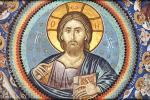 Christ the King Day is a Catholic celebration that takes place on the last Sunday of the liturgical year in the Catholic faith. continue reading
Christ the King Day is a Catholic celebration that takes place on the last Sunday of the liturgical year in the Catholic faith. continue reading
Advent 2025 starts on Sunday, November 30, 2025
Advent starts four Sundays before Christmas every year.Immaculate Conception of the Virgin Mary
[holy day of obligation]
Monday, December 8, 2025
![Immaculate Conception of the Virgin Mary[holy day of obligation] Image of Immaculate Conception of the Virgin Mary[holy day of obligation]](https://www.catholic.org/files/images/media//14812140994558_150.jpg) Blessed Virgin Mary in the first instance of her conception, by a singular privilege and grace granted by God, in view of the merits of Jesus Christ, ... continue reading
Blessed Virgin Mary in the first instance of her conception, by a singular privilege and grace granted by God, in view of the merits of Jesus Christ, ... continue reading
Advent 2026 ends on Sunday December 24, 2026
Advent ends on Christmas Eve, the day before Christmas, every year.Christmas
Birth of Our Lord Jesus
[holy day of obligation]
Monday, December 25, 2025
![ChristmasBirth of Our Lord Jesus[holy day of obligation] Image of ChristmasBirth of Our Lord Jesus[holy day of obligation]](https://www.catholic.org/files/images/media//15226932365_150.jpg) Christmas is an annual festival commemorating the birth of Jesus Christ. continue reading
Christmas is an annual festival commemorating the birth of Jesus Christ. continue reading
The Solemnity of Mary, Mother of God
[holy day of obligation]
Wednesday, January 1, 2026
![The Solemnity of Mary, Mother of God[holy day of obligation] Image of The Solemnity of Mary, Mother of God[holy day of obligation]](https://www.catholic.org/files/images/media/2022/16665677875_150.jpg) The Solemnity of Mary, the Holy Mother of God is a feast day of the Blessed Virgin Mary under the aspect of her motherhood of Jesus Christ. continue reading
The Solemnity of Mary, the Holy Mother of God is a feast day of the Blessed Virgin Mary under the aspect of her motherhood of Jesus Christ. continue reading
Epiphany
Monday, January 6, 2026
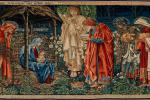 The Epiphany signifies the visitation of the Biblical Magi to the Baby Jesus. continue reading
The Epiphany signifies the visitation of the Biblical Magi to the Baby Jesus. continue reading
Advent Reflections
Reflection for every day of Advent
 Advent is a period of waiting, like Lent. We are called to obtain the Sacrament of Reconciliation, to pray and fast, as we await the arrival of our ... continue reading
Advent is a period of waiting, like Lent. We are called to obtain the Sacrament of Reconciliation, to pray and fast, as we await the arrival of our ... continue reading
Advent Calendar
Every day of Advent
 An Advent calendar has become a tradition for many families when celebrating Advent and the Christmas season. continue reading
An Advent calendar has become a tradition for many families when celebrating Advent and the Christmas season. continue reading
Advent Candle
24 Days of December
 An Advent candle is a neat way to mark off the days until Christmas. Such candles are commonly found in churches and sometimes in homes. continue reading
An Advent candle is a neat way to mark off the days until Christmas. Such candles are commonly found in churches and sometimes in homes. continue reading
Advent Wreath
Each Sunday of Advent
 The wreath's symbolism of the advent (coming) of Light into the world is clear. The gradual lighting of the four candles, one on each Sunday of the ... continue reading
The wreath's symbolism of the advent (coming) of Light into the world is clear. The gradual lighting of the four candles, one on each Sunday of the ... continue reading
Advent & Christmas Classes
14 Free Classes - Mobile Friendly
 You’re joining our global classroom. Thousands of students from all over the world, each with their own unique story, learn at their own pace on ... continue reading
You’re joining our global classroom. Thousands of students from all over the world, each with their own unique story, learn at their own pace on ... continue reading
Advent & Christmas PDFs
FREE - Printable - Catholic
 Free Advent & Christmas PDFs for anyone, anywhere; Use in your Parish Church - School - Bulletin Inserts. continue reading
Free Advent & Christmas PDFs for anyone, anywhere; Use in your Parish Church - School - Bulletin Inserts. continue reading
Christmas Gifts
Free Shipping $70+
 Make This Christmas Special with Gifts from Catholic Online Shopping. continue reading
Make This Christmas Special with Gifts from Catholic Online Shopping. continue reading
Nativity Scene
Holy Family
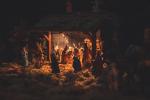 The Nativity Scene is a meaningful expression for our religious faith. With it, we provide a captivating visual focus during the Christmas season. continue reading
The Nativity Scene is a meaningful expression for our religious faith. With it, we provide a captivating visual focus during the Christmas season. continue reading
St. Nicholas
December 6th
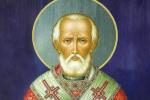 The true story of Santa Claus begins with Saint Nicholas. continue reading
The true story of Santa Claus begins with Saint Nicholas. continue reading
Advent? What is it all about
 The word Advent derives from the Latin word meaning coming. The Lord is coming. We may reflect that every year at this time we celebrate his coming... continue reading
The word Advent derives from the Latin word meaning coming. The Lord is coming. We may reflect that every year at this time we celebrate his coming... continue readingThe Christmas Story
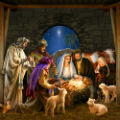 To become the mother of the Savior, Mary "was enriched by God with gifts appropriate to such a role." The angel Gabriel at the moment of... continue reading
To become the mother of the Savior, Mary "was enriched by God with gifts appropriate to such a role." The angel Gabriel at the moment of... continue readingAdvent Daily Readings
 The weeks of Advent remind us to set aside some of the hectic business of the holiday season, and to quietly reflect on the promise of the baby... continue reading
The weeks of Advent remind us to set aside some of the hectic business of the holiday season, and to quietly reflect on the promise of the baby... continue readingMore Advent & Christmas
Bishop Strickland's Christmastide Message: A Call to Repentance and Courageous Discipleship
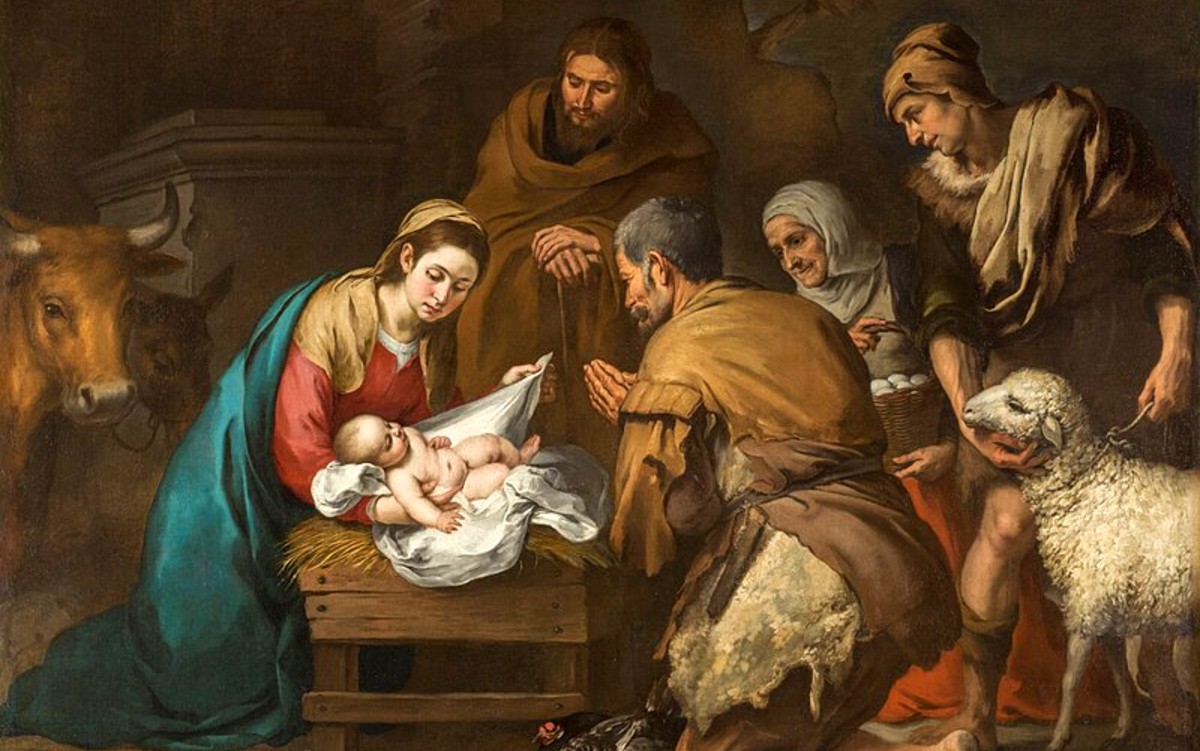
As we begin a new year, Bishop Strickland offers us a powerful reflection to carry through Christmastide and beyond. His words remind us of ... continue reading
The Deacon Saint Stephen the Proto-Martyr is a Model for all Christians

In the Catholic Church, Christmas is celebrated for eight days (Octave, from the Latin Octava) and opens up into a wonderful liturgical ... continue reading
Love is Born on Christmas Morn, and the World is Born Anew Watch

The Gospel passages proclaimed at the Vigil and the Midnight Mass of Christmas root the Nativity of the Lord, in the family history and ... continue reading
Rediscovering the True Importance of Christmas for Catholics

As the world becomes increasingly secularized, the true significance of Christmas can often be overshadowed by commercialism, distractions, ... continue reading
5 Ways to keep Jesus in your Christmas celebrations this year
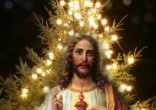
Christmas is a magical time of year when decorations line the streets, children are suddenly behaving and the Post Office struggles to keep ... continue reading
Get your oven mitts ready, it's time to bake Christmas cookies! Watch

Logs are burning in the fireplace and a sweet holiday tune escapes from the stereo. Christmas is here and it's time to break out those eggs ... continue reading
Join the Movement
When you sign up below, you don't just join an email list - you're joining an entire movement for Free world class Catholic education.
An Urgent Message from Sister Sara – Please Watch
- Easter / Lent
- 5 Lenten Prayers
- Ash Wednesday
- 7 Morning Prayers
- Mysteries of the Rosary
- Litany of the Bl. Virgin Mary
- Popular Saints
- Popular Prayers
- Female Saints
- Saint Feast Days by Month
- Stations of the Cross
- St. Francis of Assisi
- St. Michael the Archangel
- The Apostles' Creed
- Unfailing Prayer to St. Anthony
- Pray the Rosary
![]()
Copyright 2026 Catholic Online. All materials contained on this site, whether written, audible or visual are the exclusive property of Catholic Online and are protected under U.S. and International copyright laws, © Copyright 2026 Catholic Online. Any unauthorized use, without prior written consent of Catholic Online is strictly forbidden and prohibited.
Catholic Online is a Project of Your Catholic Voice Foundation, a Not-for-Profit Corporation. Your Catholic Voice Foundation has been granted a recognition of tax exemption under Section 501(c)(3) of the Internal Revenue Code. Federal Tax Identification Number: 81-0596847. Your gift is tax-deductible as allowed by law.
















